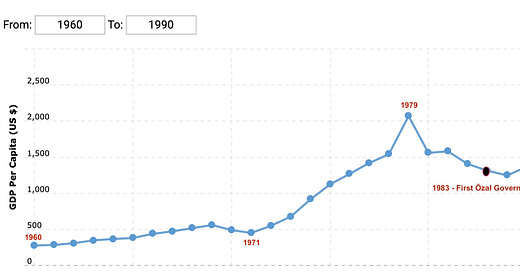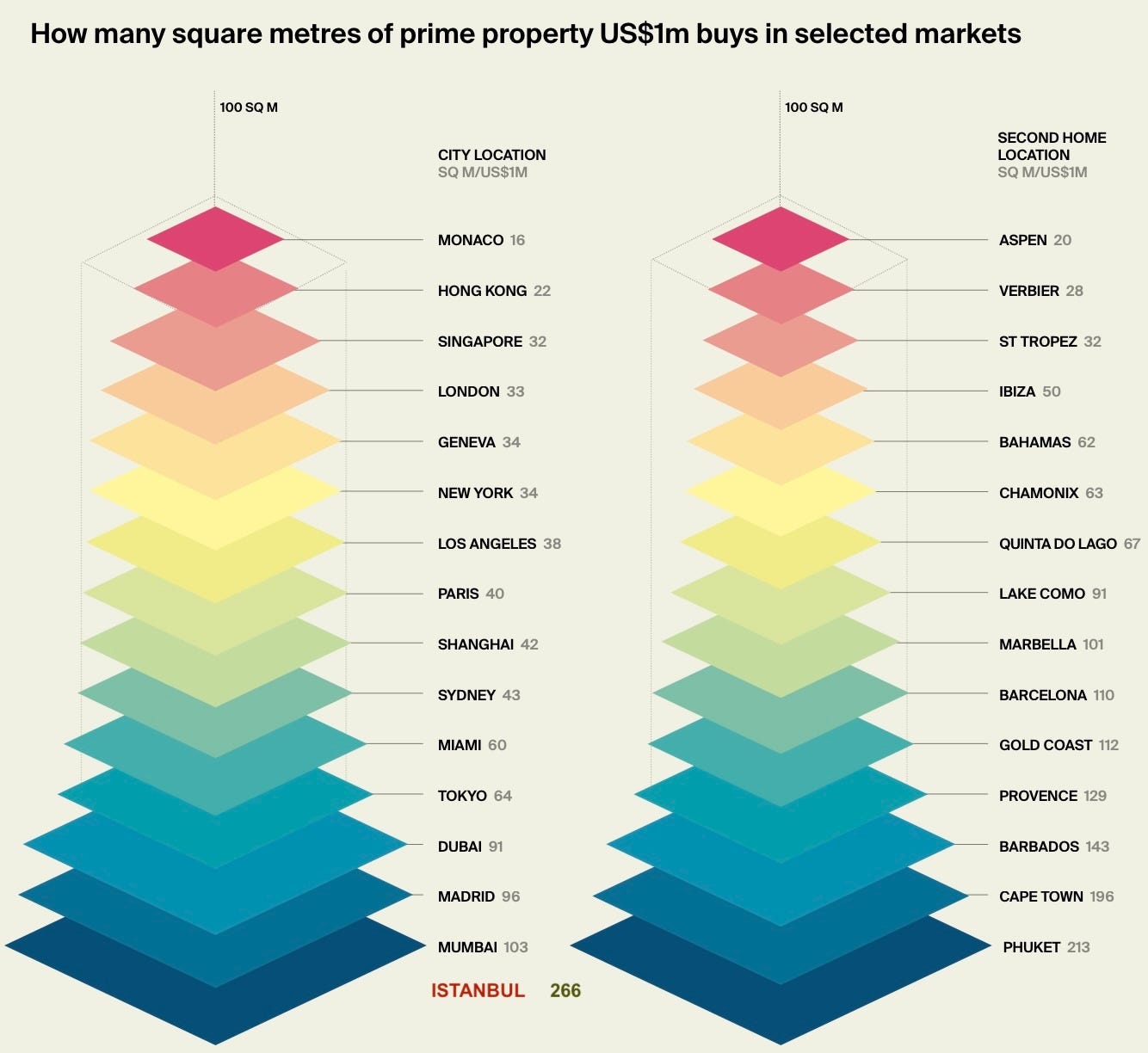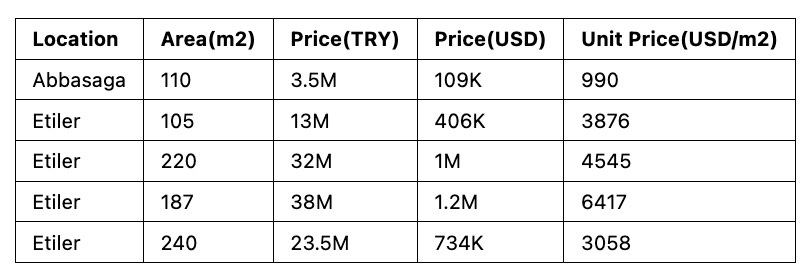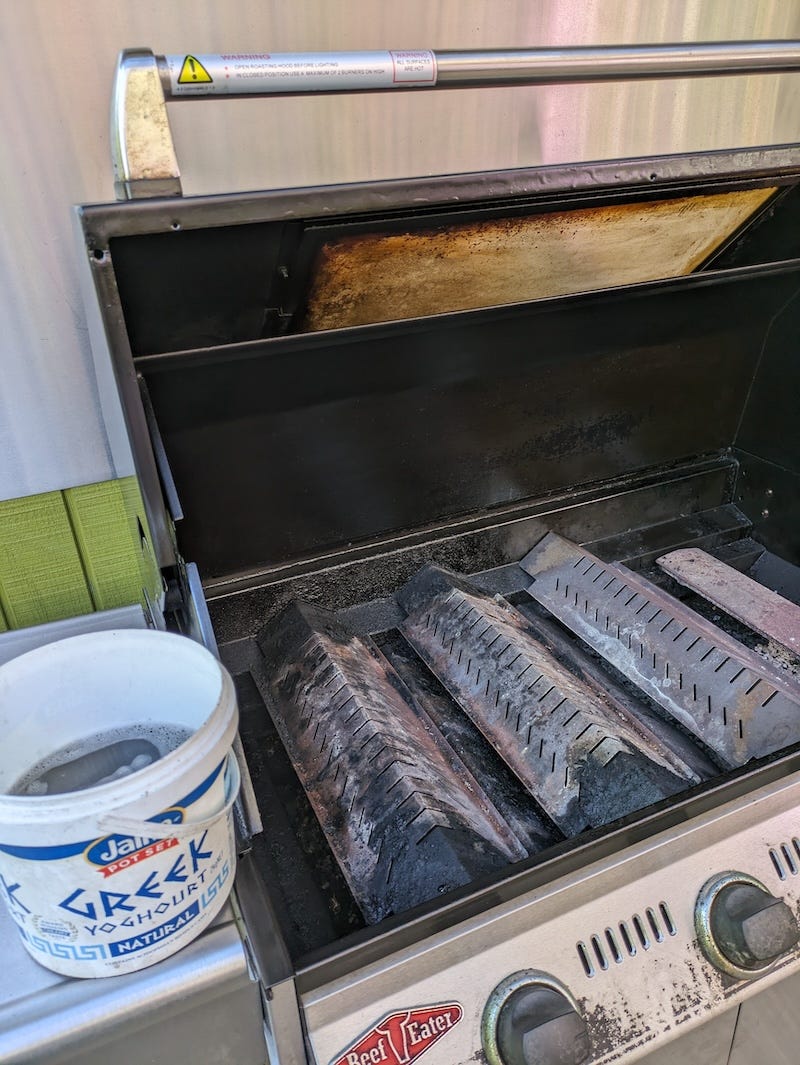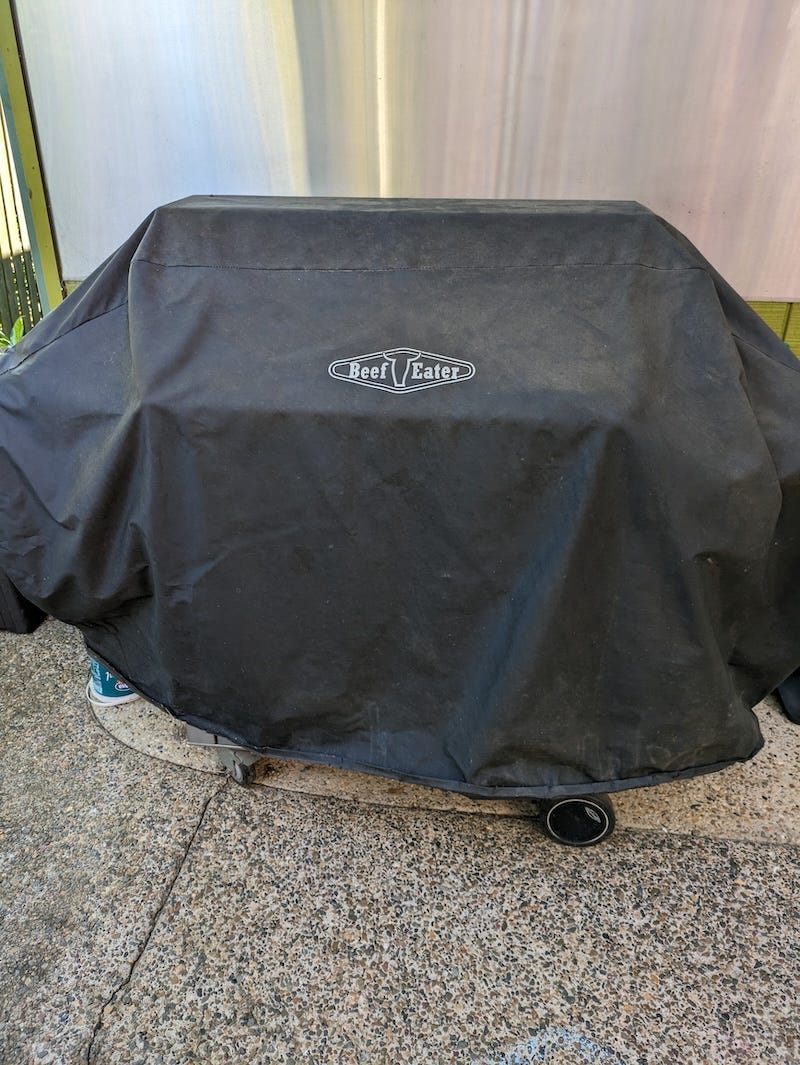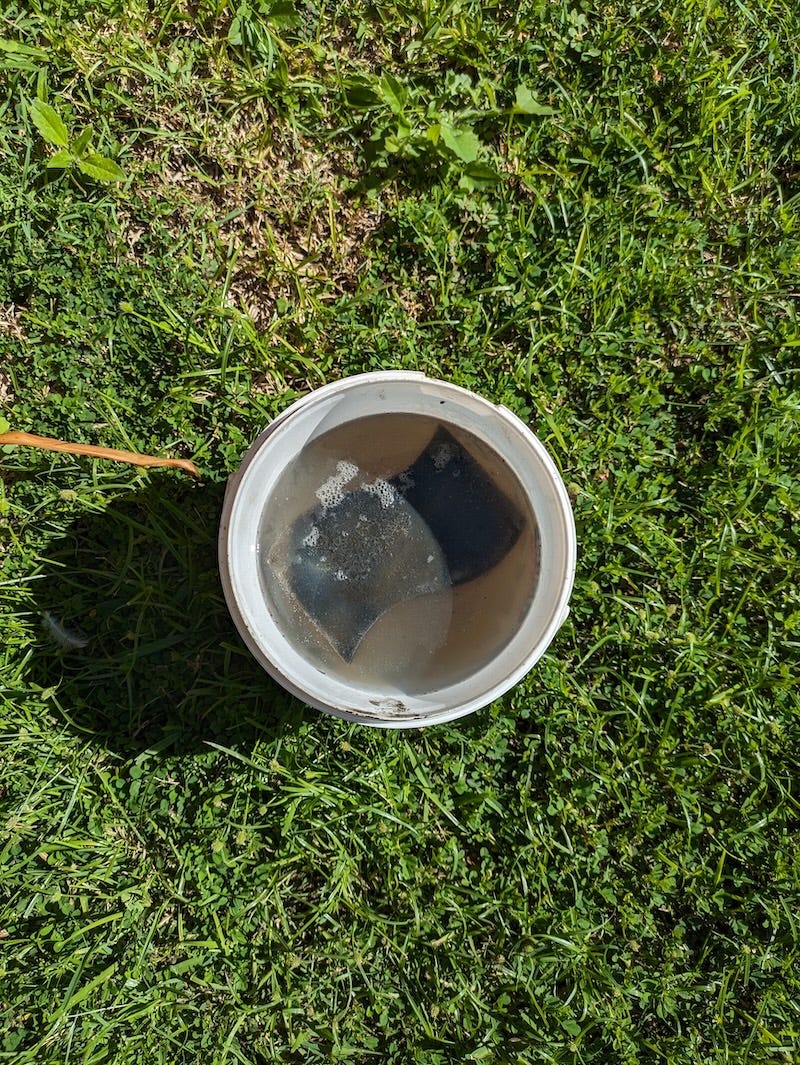Turkish Republic - The Age of Maturity
Turkey is entering a new era, the third phase in its development. In the multi-polar ROGUE world, Turkey is shaping up as the dominant power in Near East.
Please subscribe; please share. This blog will always be free but worthy reading.
Copy and share the link, post it on another platform. It is not that I get money with more subscribers, but it makes me happy when more people read it. Vanity is a funny thing.
Too busy this week. I have just finished the English version. I usually write in English, then translate to Turkish, and then post both versions simultaneously. This time I will make an exception and release them separately. I will post the English version today. The Turkish version will be released on the weekend.
-+-+-+-+
I started writing this post before the Turkish municipal elections held on 31 March 2024. The results seem to support the main points of this post but my main theme is beyond the individual political players but on the historical development of the nation.
Some of the following concepts on global politics were introduced in my first post on the new ROGUE age. The term elite consensus and its unique importance for national development was introduced in another past post last year. One may want to refer to those pages to better understand some of the points below.
This post is about Turkey entering a new era. The previous two were:
* 1923 - 1980 Consolidation
* 1980 - 2024 Revision
In its third era, Turkey will rise as a significant regional power. Let us take a brief look at what happened before.
Consolidation of the Republic, 1923 - 1980
After World War 1, the survival of an independent Turkey was at stake. The threat was defeated only after an exhausting military campaign led by Mustafa Kemal Atatürk. Consolidation of the new Republic was the first and foremost in the minds of Mustafa Kemal and his comrades.
They were from the Western lands of the Ottoman Empire (Greece and the Balkans). This is an important point. They witnessed the displacement of their families along woth whole communities expelled from what they thought were their native lands. Their ancestors had been living there for the past 500 years1. The Post-WW1 British/Greek invasion of Anatolian peninsula threatened to convert this displacement of Turks to annihilation of Turks.
As we know, the Greek invasion was repelled and the boundaries of the new Turkey were recognised by the Lausanne agreement in July 1923. But could the Republic trust the Lausanne signatories? In those years when agreements lasted only until the next war, it probably was impossible for Mustafa Kemal and the other leaders of the new Republic not to be asking this question to themselves.
I know significant criticism was raised for some of the deeds done in early years of the Republic. It is difficult for me to imagine the mentality of Turkey's founding fathers. I believe they did what they felt they had to do to nurture and protect the young Republic.
Foreign Policy
Young Turkey maintained an independent position in the multi-polar inter-war period. Today, the globe is becoming multipolar again, I expect historians will examine the foreign policy of 1920s and 1930s to draw lessons for today. In that period, Turkey was trying to maintain its independence from the Great Powers while asserting its regional dominance when appropriate, e.g. in annexation of Hatay. Similarities to present-day challenges are not superficial.
The WW2 and its aftermath introduced new threats. A bi-polar world order was shaping up and it was difficult to stay independent any more. Turkey chose the Western camp and became a NATO member. Its membership in NATO defined the Turkish Foreign Policy until 1980s.
Cyprus is the notable exception. It is an important exception because it demonstrates that Turkey was prepared to act independent of NATO to protect its regional interests (and it still is).
Domestic Developments
During this time, a new ruling elite was being constructed from top down. In an earlier post, I raised the importance of the elite consensus for the advancement of a country. A related topic is how the rest of the society is made to accept this elite consensus. We have to do a little detour here through Gramsci.
Gramsci proposed the concept of hegemony to explain how the elites were able to control the cultural and ideological discourse in such a way that their views became accepted as the cultural norm and a universal ideology. The society accepts the elite ideology as natural and inevitable, often perceiving it in their own interest.
At the onset of the Turkish Republic, Mustafa Kemal and his comrades were a tiny minority but theirs was the only group with a vision for the country. They did not maintain their power because they controlled the army, they controlled the army because they offered the most coherent vision.
The first ten years of the Republic was very hard. It shows the quality of the leadership that the country not only survived through them but survived without degenerating into a dictatorship like Hitler's Germany, Mussolini's Italy or Stalin's Soviet Union.
One of the challenges was to expand the elite base. In Turkey of that day, this could be done by creating a national bourgeoisie. I say “creating” because of Turkish bourgeoisie there was almost none. Most of the industry, trade and commerce used to be done by Christian subjects of the Ottoman empire. Most of these people had access to liquid capital and, with Lausanne, they left Turkey. They were replaced top down by Muslim Turks. I do not know where the capital accumulation came from. The Republic was poor and it was also paying off the Ottoman debt. The government was able to kick start a national industrial infrastructure through the State-Owned-Enterprises (SOEs) like Sumerbank, Etibank, etc. but could not do much to encourage the private industry. One source for the capital accumulation was certainly the exploitation of the peasantry and this explains the small town hostility against the Republican Party (CHP) that lasted to this day.
There were two notable social phenomena that marked this consolidation era:
· The continued idealism of the armed force commanding officers
· Widening of the base of the ruling elite
The ruling elite in the early years of the Republic was a mix of military officers and civilians in the tradition of the former Committee Union and Progress. Most of them were fiercely idealist and were not interested in personal wealth. Idealism is not uncommon for revolutionary cadres. The unusual thing for Turkey is that this idealism was maintained for several generations in the military forces through careful grooming of the future military leaders in the armed forces.
These military commanders, at the same time, subscribed to Atatürk's governing principle that it was imperative for the military not to be involved with politics. Therefore, from the very early days of the republic, the ruling elite wanted to widen its base by increasing the civilian power but wanted to do so only while maintaining the core character of the new regime. These two aims can be in conflict and occasionally they were. For example, a multi-party regime was introduced in 1930 with the formation of a second party, Serbest Fırka (Free Party), but this decision was quickly reversed when the popular support of the new party threatened the Republican regime.
It was probably against future repetitions of the Serbest Fırka episode that the role of the military forces to keep a watch on the Republic was codified as early as 1935 in the Article 35 of the Turkish Armed Forces Internal Service Law (Çelik, 2019).
This was not a power grab by the army. The army commanders were advised to stay above politics yet they were also given the duty of course correction when they thought the politicians were threatening the foundations of the Republic.
Multi-party elections were held in 1946 and the opposition party, the Democrat Party, came to power in 1950. The excesses of the Democratic party shenanigans led to a military coup in 1960. Yet, the military did not stay in power and elections were held again. This seesaw between civilian politics and the course-correcting military interventions continued until 1980.
The 1980 coup was the last successful military correction. That is why I end this first era, Consolidation Period, in 1980. I do not count the final 1998 intervention successful because it made a significant contribution to bringing AK Party to power and had an effect opposite of the coup leaders' intentions.
In 2002, the AK Party received only 34% of the vote but secured two-thirds of the parliamentary seats. Its disproportionate representation in the parliament was due to an artifact of the Turkish electoral law that was invented by the 1980 coup in a bid to maintain stability by keeping marginals out of the parliament. This junta invention granted a two-thirds majority to an Islamist party that received only one third of the popular vote.
Revision of the Republic, 1980 - 2024
In 1980s, two parallel developments dramatically changed the nature of the Turkish republic:
* The Özal reforms in 1980s were similar to what was happening in other capitalist countries at that time such as trade liberalisation and variable exchange rates. The effect on the growth rate in early years was not substantial but the reforms changed the internal dynamics of the country. Turkey 15 years after the first Özal government was economically a much more complex country.
* Berlin Wall came down in 1989. In August 1991, there was a failed coup attempt by Communist hard-liners against Soviet President Mikhail Gorbachev. This accelerated the breakup of the Soviet regime and the Soviet Union was officially dissolved on December 26, 1991.
Özal reforms may appear domestically motivated but they were part of an international trend. For example, Australia switched to a floating rate in December 1983, about the same time Turkey did it.
Both developments contributed to curtailing of the role of the army in Turkish society. How this curtailment proceeded is interesting but is beyond my scope. What counts is that, February 1998 was the last hurray of the military commanders. Although the intervention appeared to have succeeded momentarily because it brought down the Islamist government of Erbakan, it also paved the way for the rise of the AK Party, which came to power in 2002 and has been in power since then.
The revisionist reconstruction of the Turkish elite started in 1980 but accelerated in 2002 with AK Party coming to power. When you describe the process like that, one cannot refer to the AK Party as a rebellion but as an elite project. The AK Party project was part of the strategy of the Turkish elites unchanged since the foundation of the republic: "Expand the ruling base of the Republic".
If you maintained AK Party was an aberration and a rebellion to the Republican status quo, it is difficult to rationalise why Deniz Baykal helped Erdogan in 2002 by assisting to lift a legal injunction which was preventing Erdogan from entering politics2; and then again in 2015 advising Erdogan when AK Party lost parliamentary majority in June3.
The agreement of the elites on the expansion of the oligarchy was not universal. The expansion of the base was not possible without removing some of the parts, namely the uncompromising secular soldiers and intellectuals who had been part of the ruling coalition since 1923 but refused to co-opt the AK Party supporters into the coalition. They struggled hard but lost.
As part of the declawing of the military, the Article 35 of the Turkish Armed Forces Internal Service Law was modified by the AK Party Government in 2013. In the new version, the responsibility of the military forces was defined as "the protection of the Turkish land against external4 threats and dangers". MHP and CHP were against this change and they argued that one could not separate external from domestic threats and the brief for the military was to cover all.
The duty of the Armed Forces; To defend the Turkish homeland against threats and dangers coming from abroad, to maintain and strengthen the military force to provide deterrence, to perform duties assigned abroad by the decision of the Turkish Grand National Assembly and to help ensure international peace.
Silahlı Kuvvetlerin vazifesi; yurt dışından gelecek tehdit ve tehlikelere karşı Türk vatanını savunmak, caydırıcılık sağlayacak şekilde askeri gücün muhafazasını ve güçlendirilmesini sağlamak, Türkiye Büyük Millet Meclisi kararıyla yurt dışında verilen görevleri yapmak ve uluslararası barışın sağlanmasına yardımcı olmaktır.
While this was happening, some Turkish commentators claimed it to be the upending of the secular Republic because they thought, once the army was sidelined, nothing would stop AK Party from replacing Ataturk's Republic with an Islamist regime.
I did not share these concerns because I thought the majority of the people who voted for AK Party were not against the secular Republic. Admittedly, my opinions were based on a limited sample of people I knew personally and people I knew through their writings. Most of those people supported AK Party because they opposed the sectarian interpretation of the secularism supported by regular ten-yearly military coups.
Incidentally, if AK Party was a project of the Turkish Republican elite consensus, the Gülenist movement was a CIA project. It was a Trojan Horse. Ak Party and Gülenists collaborated at first but they soon clashed and the Gülenists were defeated after a failed putsch in 2016. One could interpret the Fethullah Gülen movement as part of a CIA ploy to place people into the elite completely under US control but this ploy failed.
What Now?
The Revisionist period is now at an end. The new ordering of the elites is complete and there is a new consensus. I think the following are the parameters of this new consensus:
Turkey will maintain its Western identity but will develop independent regional and global policies
Turkey anticipates US leaving Middle East. This will create a vacuum in regional power dynamics. With Russia weakened after a Pyrrhic victory in Ukraine, Turkey will aim to fill in this vacuum.
The independence of the judiciary system and other bureaucracy will be reestablished5 after the destruction of this independence by the war between the elites during the revisionist period.
The anti-labour policies of the AK Party will continue
The economic liberalisation that started with Özal but damaged by the populist policies of AK Party will be resumed.
There are corollaries associated with each of these points. For example, the ambition to become the regional hegemon will require making peace with the Kurds and collaborating with a weakened Israel. It will also mean the re-participation of the military back in the oligarchy but this time as part of a military-industrial complex, like in US and some other countries.
There is also the question of the political agency that will realise this new consensus. Erdogan will try to do it. I do not think he will be able to do it but if he succeeds, AK Party will win 2028 elections. A stronger alternative is a re-juvenated CHP. This will require a reinterpretation of the "Six Arrows" of the Party6. None of the other present political parties seem to have the potential but a new third party claiming the middle ground is always possible if CHP and AK Party continue their sectarian politics from opposite sides of the centre.
REFERENCES
Çelik, S. (2019). Article 35 of the Turkish Armed Forces Internal Service Law and The Army’s Protection and Guardianship Duty. Journal of Current Research on Social Sciences, 9 (4), 203-222.
Short Takes
Last refuge of the cork manufacturers is environment
Semafor, 3 April 2024
-+-+-+-+ Five years ago, I remember discussing with a friend in Istanbul whether the best cap for a wine bottle was a traditional cork or a screw cap. Screw caps were almost universal in Australia at that time and their merits were well known. However, I could not convince my friend. Since than, the whole world came to accept the Australian position that the screw cap is the better technology. The only defence for cork is that it grows on trees. I copy from Semafor:
Winemakers are battling over whether corks or screw caps are better for the environment. The fight used to be over which best preserved wine quality: Screws won decisively, as cork can allow oxygen into the bottle. But cork forests are carbon sinks, while screw caps are aluminum and theoretically recyclable. Producers for both have commissioned studies and reports to prove that their stoppage method is the greenest. “I am convinced that screwcaps are as good for wine as a perfect cork,” the wine critic Jancis Robinson wrote in the Financial Times, “but can’t work out which is better for the planet.”
Is Deep Geothermal coming back?
Power, April 2024
-+-+-+-+ Twenty years ago in Australia, we thought that deep geothermal energy was going to save the world. Ten companies were competing to get there first. Huge sums of money were spent and most of it were private investment. The result was a huge disappointment. The main premise of deep geothermal energy is that, at depths three to five kilometers, the rocks are hot almost everywhere around the world and, if we could access this heat, we would be unlocking a resource that is practically unlimited. The premise is correct but bringing that heat to the surface turned out to be too expensive in Australia at that time. At the Australian Geothermal Energy Conference in 2013, I listed three conditions for the commercial feasibility of deep geothermal energy in the 5-km deep wells in Australia with a rock temperature of 225 C:
Well costs = Around $15m/well (Australian dollars)
50% better power conversion
Flow Rate = 30-60 kg/s
At that time, I thought that first condition was the hardest to achieve.
Twelve years later, Sonal Patel in the Power magazine reports on the success of the Fervo Energy in bringing the drilling costs down significantly. Over the four wells drilled in Cape Station, Beaver County, Utah, Fervo managed to bring the drilling costs down from $9.4 million to $4.8 million per well.
Fervo wells are shallower than the five wells Geodynamics drilled in Innamincka. Nevertheless, if $4.8m/well ($7.4m Australian dollars) can be consistently demonstrated in future wells, a rejuvenation of deep geothermal across the world may happen.
Istanbul Real Estate is not expensive if you are paying in Dollars
-+-+-+-+ A recent report by real estate consultancy Knight Frank listed how many square meters of prime property you can buy in different cities of the world. Istanbul was not listed in the report. I checked the REMAX web site and did compute myself that, for US $1m, you can buy on average 266 m2 in Beşiktaş municipality. Here is the Knight Frank graphic with my addition of Istanbul at the bottom of the left column:
I computed 266 m2/US$1m based on the following data obtained from the REMAX web page:
You Tube
I am a subscriber to Sabine Hossenfelder (SH) YouTube channel since she started three years ago. Not all her videos are of interest to me but I have always found them truthful. I remember a reference to SH in a Lex Friedman interview of Brian Keating. This was about a year after she started her YouTube channel. Brian thought she was wasting her talents because she surely was Nobel prize material. Lex did not disagree.
In this video, Dr Hossenfelder explains why she is a YouTuber not an academic. It is a very frank presentation coming sincerely from the heart. Some of the critical points raised on German Institutions are also true for the Australian universities and research organisations.
Even if you are not interested in a university career, I suggest you watch the video. I am sure you will find parts to emphatise:
I was intrigued by the lack of reference to teaching in her presentation. For me, the main reason to work for a university is to participate in training of the next generation, which I always have thought is a position of privilege.
Diary
-+-+-+-+ We look after our granddaughter Eleanor twice a week. On Tuesdays, we have a weekly family dinner. This was a tradition with Taylan and Yi before Eleanor was born but now we have an extra seat at the table for her. The seating arrangement turned out to be that Eleanor and I sit at two ends of the table. Meliz likes sitting next to Eleanor and Taylan and Yi are in the middle facing each other. Eleanor keeps staring at me through the dinner with a pensive look on her face that I interpret as “significant people sit at the heads of the table, they must be me and Dedo in this gathering.” I have not yet shared this observation with the kids and Meliz.
Once a month, the Tuesday dinner is a barbecue.
I talked about meat preparation, cooking and eating in an earlier post. Today I will talk about the clean-up the next day.
After the cooked meat is taken to the dinner table, I let the burners on for fifteen minutes to burn all grease and fat. Taylan says this is is about the extent of the barbecue cleaning for most people. But I am not the most people.
I enjoy the dinner with the kids and the next morning I start the barbecue cleanup by taking the iron plates to the front yard; hose them off; then wash them with a sponge and detergent like washing dishes; hose them off again; and then let them dry off in the sun:
Of course, it is impossinle to get them squeaky clean but this is close enough.
While the cast iron is drying off, I clean the space under them:
The burned grease and fat are impossible to remove but I give a good rubbing with the scrubber.
The outside surfaces are sprayed and wiped. I use a standard kitchen spray:
I used to use special cleaners for stainless steel surfaces but I decided to be more friendly to the environment. The regular kitchen spray does not create smudge-free shiny surfaces but that is OK.
The iron plates dry off by this time. I put them back in and oil them
We only use olive oil for cooking so what is what I use for oiling the barbecue irons. I used to use paper towel but the paper fibers stay on the plate and I do not like it. I do not to use plastic either. The product shown above is all plant-based but it has a more competent texture and does not leave fibers.
This is what it looks like after oiling:
Close the cover and it is all ready for the next barbecue:
I leave the scrubber sponge in a mixture of water and bleach for a couple of hours to get the sponge cleaned.
I do not throw away the sponge mainly for convenience. We buy these sponges from Bunnings not the local supermarket. The cheap sponges at Coles and Woolies are not very good for people who wash all their dishes by hand.
-+-+-+-+ A friend had a heart attack last November and had to have open heart surgery. He is fine now. We were together last Sunday and I asked him how he realised he was having a heart attack. He said that he woke up at 2am and had to go to the bathroom and vomited; he went back to bed but had another vomiting attach at 3am; this probably should have been enough to realise that this was something rather serious but he thought that it probably was something he ate; when he went up to vomit again at 4, his wife woke up. His wife asked him about any other pain and said that the upper left arm had a soreness. The wife immediately called an ambulance. The hospital told the wifethat if they had waited until the next day he probably would be dead. As I said above, he is fine now. He misses one vein from his right leg. It was taken out and used to repair the arteries servicing the heart.
Pascal Hagi
-+-+-+-+ We are getting ready for our trip to Turkey. While we are away, a friend will be housesitting for Pascal and Hagi. We bought new toys for Pascal and Hagi and hung them on their walls to apologise to them for being away.
What I read
I have just finished reading Alastair Reynolds’ Machine Vendetta.
This is the third and probably final book on Prefect Dreyfus, who is one of the senior people in an organisation called Panoply. Panoply is responsible for policing ten thousand city states and habitats, collectively called the Glitter Band, orbiting around the planet Yellowstone. Yellowstone is one of the two planets around the star Epsilon Eridani (incidentally, there is a real Epsilon Eridani which is a gas giant as per the NASA web site).
You do not have to read the other Epsilon Eridani books of Alastair Reynolds before you read the Prefect Dreyfuss series. In the second book, Elysium Fires, Prefect Dreyfuss was dealing with two rogue AIs: Clockmaker and Aurora. The two AIs were fighting each other and the book ended in a stalemate between them.
In this third book, one of the AIs tricks and incapacitates the other. Now the AI has plans for the humanity living in the Epsilon Eridani system and Dreyfuss needs to stop it.
I would like to address two points specifically about the book. There are no spoilers.
Policing when there is no hegemon state
Ten thousand city states in the Glitter Band are all self-sufficient. Standard services in planetary settlements do not apply here because the city-states produce their own power, their own transport (no one needs to build roads because they are all orbiting around the planet Yellowstone), and their own food. There is no social welfare, when a city-state goes bankrupt, its citizens either die with it or immigrate to another habitat if they can. Even when there is no central state, there is still a need for central security to maintain the peace between the city states. At the same time, you do not want the security organisation to become the de facto dictator. These are interesting questions and Reynolds refers to them through the plot.
Pure AI vs human upload?
One of the AIs, the clockmaker, is purely artificial. The other, Aurora, is derived from the digital upload of a teenager girl. Aurora does not consider itself a human but there are still interesting references to her human feelings such as jealousy, envy, and arrogance. The pure AI does not have such feelings. It is mainly indifferent to humans. Aurora hates them. I am not sure if human brain uploads are ever going to be possible but when that happens, would an uploaded brain with all the augmented powers count as AI?
This is about the same length of time since Columbus the Americans had been living in the American continent at that time.
In 2002, Deniz Baykal was the leader of the CHP and Erdogan was banned from politics due to an earlier conviction. The term of the ban was forever. Baykal assisted the AK Party in passing a law that removed this ban and made it possible for Erdogan to get elected to the Parliament and take over AK Party. If the CHP parliamentarians did not with AK Party, the AK Party votes were not enough to remove the ban.
I do not know if Baykal's advice influenced Erdogan in taking the aggressive path, call for a repeat election instead of looking for a compromise, and win them with a large parliamentary majority in November.
The emphasis is mine
When I say independence, I mean independent between different elite factions otherwise following the elite consensus. In other words, independent to adjudicate in accordance with the new elite consensus.
When I was writing this essay I realised that the six arrows were codified into the Turkish Constitution in 1937, one year before Ataturk's death. Therefore, they are probably more a reflection of the Inonu interpretation of the Republic rather than Ataturk’s. I do not have time to pursue this thread of thought.
